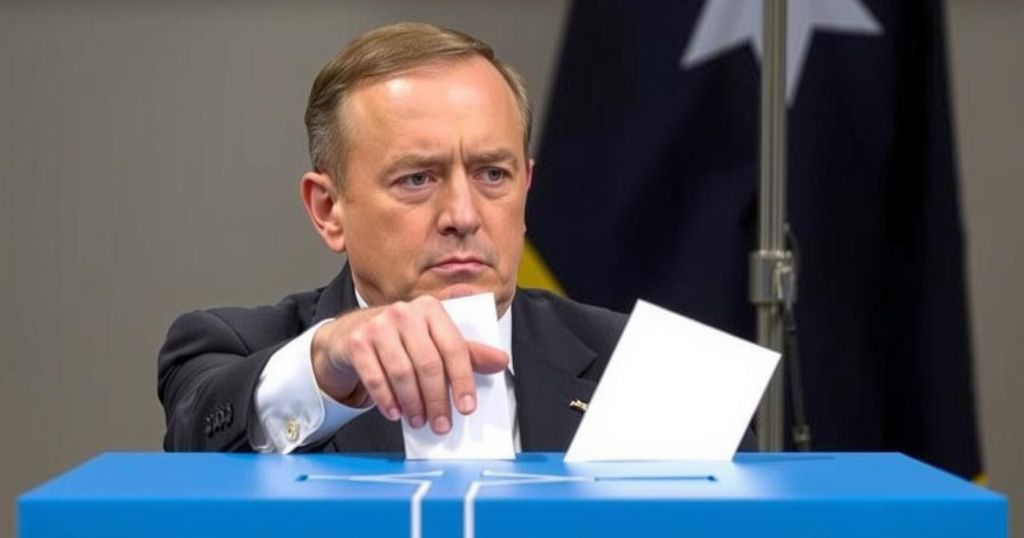Romania’s Presidential Election Annulled Amid Russian Interference Claims

Romania’s presidential election was annulled by the Constitutional Court due to suspected Russian interference, requiring a full rerun. The ruling, which comes before outgoing President Klaus Iohannis’s term ends on December 21, highlights concerns about foreign influence in elections. Pro-Russian candidate Calin Georgescu faces potential legal challenges, while pro-European candidate Elena Lasconi also reacts to the ruling. Analysts warn of implications for Romania’s pro-Western stance and democratic stability amid the geopolitical tensions with Russia.
Romania’s Constitutional Court has declared the ongoing presidential election invalid due to allegations of Russian interference. This unexpected ruling necessitates a complete rerun of the election process, affecting a significant number of votes already cast. With outgoing President Klaus Iohannis’s term concluding on December 21, the future leadership remains uncertain until a new election date is established. The controversy intensified as security documents revealed numerous cyberattacks associated with the election, leading to heightened tensions regarding foreign influence on Romania’s democratic processes.
The annulled election began with a first round during which pro-Russian candidate Calin Georgescu unexpectedly surged in support, despite previous low polling. His challenger, pro-European candidate Elena Lasconi, will also be impacted by the rerun. The court justified its decision by asserting the need to maintain electoral fairness and legality, with over 85,000 cyberattacks reported against electoral systems, strongly implicating Russia in a coordinated influence campaign to support Georgescu. The Moscow government has denied these allegations and claims of interference.
Prime Minister Marcel Ciolacu praised the court’s ruling as just, though the decision has sparked strong dissent among various political figures, some of whom criticize it as effectively a coup d’état. As Romania grapples with the implications of this ruling, analysts express concern that such political instability could jeopardize the nation’s pro-Western alliances, particularly given its EU and NATO memberships. The ramifications of Georgescu’s potential agenda toward alignment with Moscow-friendly nations are also being scrutinized, given the risks posed to U.S. interests in the region. This situation raises questions about the integrity of democratic institutions in Romania and the broader effects on East-West relations in Eastern Europe.
The recent decision by Romania’s Constitutional Court to annul the presidential election highlights the increasing concerns over foreign interference in national elections, particularly from Russia. This ruling comes on the heels of extensive scrutiny regarding cybersecurity threats and efforts to manipulate public opinion through social media. Romania’s geopolitical position as a member of the European Union and NATO magnifies the implications of this situation, emphasizing the delicate balance the country must maintain between Western alliances and potential shifts toward Eastern influences, especially given the context of its support for Ukraine amidst ongoing conflicts in the region.
The annulment of Romania’s presidential election underscores the complexities of safeguarding democratic processes in the face of foreign interference. With rising tensions and the necessity for a rerun of the electoral process, Romania faces a crucial juncture in determining its political direction. As the nation navigates through these challenges, the preservation of democratic integrity and stability in its institutions will be paramount to maintaining its standing within the European community and its alignment with Western allies.
Original Source: foreignpolicy.com








